The complete list of alternatives to all Google products
Parallel universe for the super security conscious
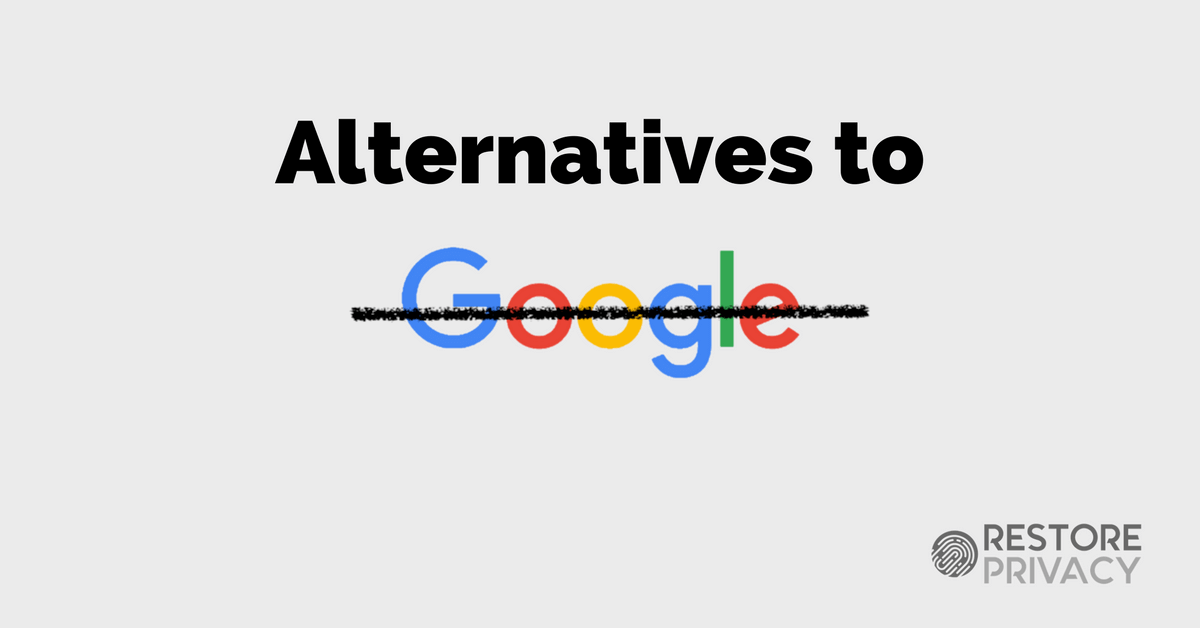
With growing concerns over online privacy and securing personal data, more people than ever are considering alternatives to Google products. After all, Google’s business model essentially revolves around data collection and advertisements, both of which infringe on your privacy. More data means better (targeted) ads and more revenue. The company pulled in over $134 billion in ad revenue last year alone – and that number continues to grow.
Editor’s Note:
Guest author Sven Taylor is the editor behind Restore Privacy, a blog dedicated to inform about best online privacy practices, secure your electronic devices, unblock restricted content and defeat censorship.
But the word is getting out. A growing number of people are seeking alternatives to Google products that respect their privacy and data. This guide aims to be the most exhaustive resource available for documenting alternatives to Google services. Since you are reading this, we assume you are one of them. So let’s get started (in no particular order nor preference)…
Small steps to restoring your privacy
When beginning the journey of restoring digital privacy, some people get overwhelmed with all the work involved, and perhaps give up. Don’t let that be you. Understand that you don’t need to do everything right away. Instead, start small and go step by step at your own pace. With each step in the process, you get more security and control over your personal data, which is a small victory.
Google search alternatives
When it comes to privacy, using Google search is not a good idea. When you use their search engine, Google is recording your IP address, search terms, user agent, and often a unique identifier, which is stored in cookies.
Here are eight Google search alternatives to consider:
- MetaGer – An open source metasearch engine with good features, based in Germany.
- SwissCows – A zero-tracking private search engine based in Switzerland, hosted on secure Swiss infrastructure.
- Searx – A privacy-friendly and versatile metasearch engine that’s also open source.
- Qwant – A private search engine based in France.
- DuckDuckGo – A private search engine based in the US.
- Mojeek – The only true search engine (rather than metasearch engine) that has its own crawler and index (based in the UK).
- YaCy – A decentralized, open source, peer-to-peer search engine.
- Givero – Based in Denmark, Givero offers more privacy than Google and combines search with charitable donations.
Note: With the exception of Mojeek, all of the private search engines above are technically metasearch engines, since they source their results from other search engines, such as Bing and Google.
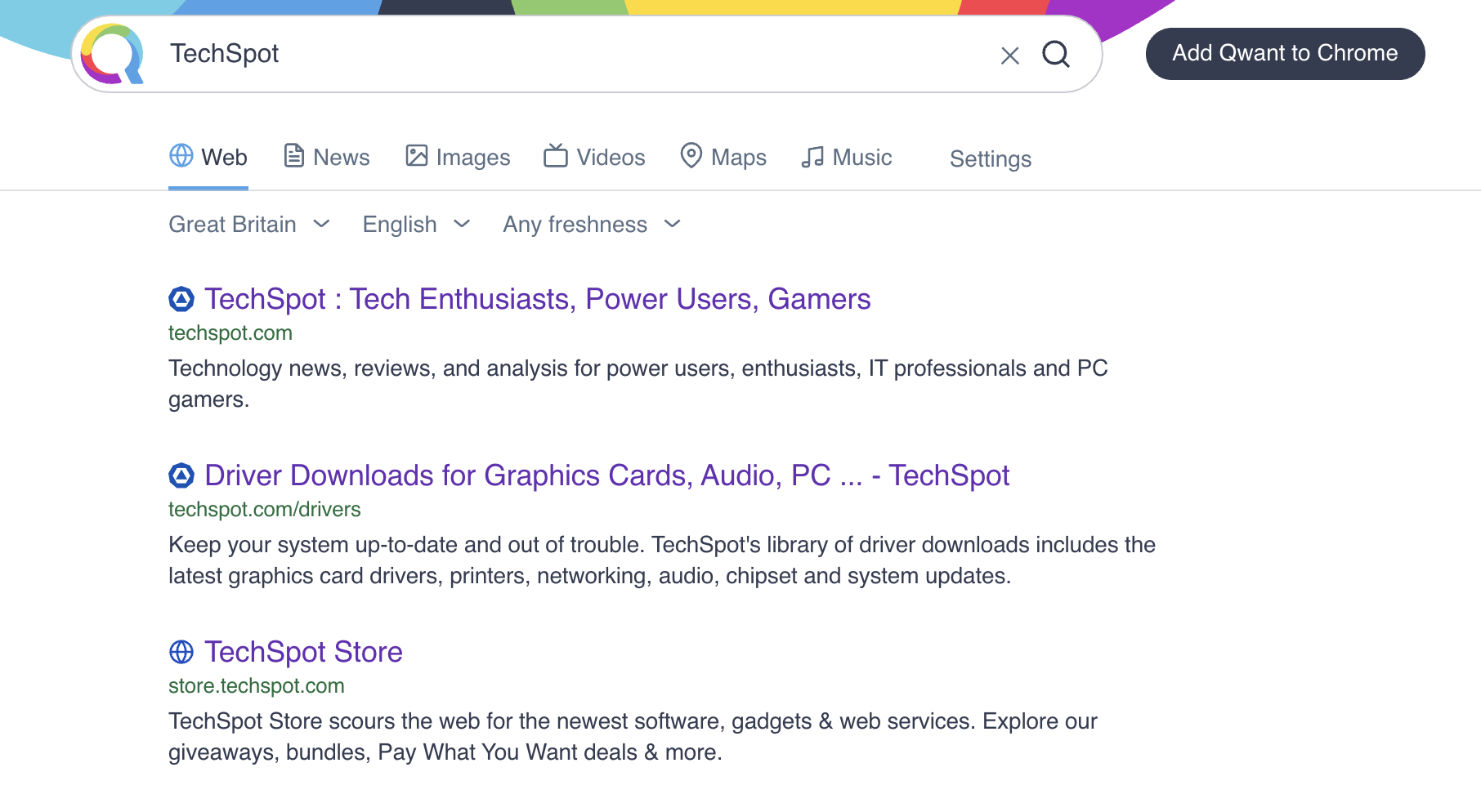
See the new and updated best private search engines guide for additional information. Here we also explain that some “private search engines” are actually owned by advertising companies. Three examples of this are Startpage, Search Encrypt, and Ghostpeek.
Gmail alternatives
Gmail may be convenient and popular, but there are three major problems:
- Your inbox is used as a data collection tool. (Did you know Google tracks your purchasing history using the receipts in your inbox?)
- Rather than seeing just emails, your email inbox is also used for ads and marketing.
- The contents of your inbox are being shared with Google and other random third parties.
When you remain logged in to your Gmail account, Google can easily track your activities online as you browse different websites, which may be hosting Google Analytics or Google ads (AdSense).

Here are ten alternatives to Gmail that do well in terms of privacy:
- ProtonMail – based in Switzerland; free accounts up to 500 MB
- Mailfence – based in Belgium; lots of features; free accounts up to 500 MB
- Tutanota – based in Germany; very secure and private; free accounts up to 1 GB
- Mailbox.org – based in Germany; €1/mo with 30 day free trial
- Posteo – based in Germany; €1/mo with 14 day refund window
- Runbox – based in Norway; lots of storage and features; $1.66/mo with 30 day free trial
- CounterMail – based in Sweden; $4.00/mo with 7 day free trial
- CTemplar – based in Iceland; free accounts up to 1 GB
- Kolab Now – based in Switzerland; €4.41/mo with 30 day money-back guarantee
- StartMail – based in Netherlands; $5.00/mo with 7 day free trial
- Soverin – based in Netherlands; €3.25/mo with partial 30 day refund window
- Thexyz – based in Canada; $1.95/mo with 30 day refund window
More information on these providers is available in the secure and private email services guide.
Chrome alternatives
Google Chrome is a popular browser, but it’s also a data collection tool. This became the more obvious when even the Washington Post stated that “Google’s web browser has become spy software,” with 11,000 tracker cookies observed in a single week.
Here are seven alternatives that offer more privacy while still being secure against hackers and other miscreants:
- Firefox browser – Firefox is a very customizable, open-source browser that is popular in privacy circles. There are also many different Firefox modifications and tweaks that will give you more privacy and security. Check out Firefox Focus for a strong mobile privacy option.
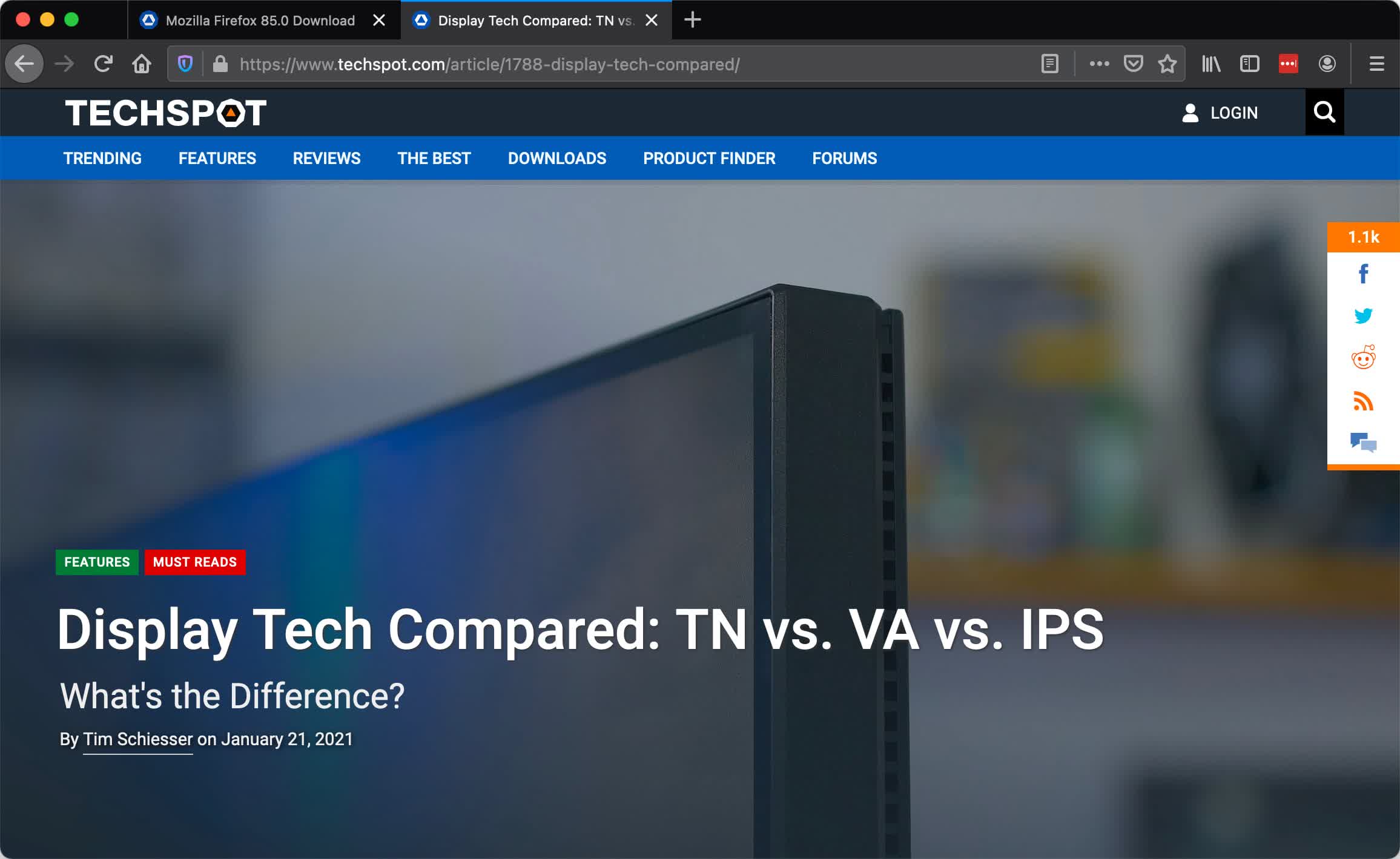
- Iridium – Based on open source Chromium, Iridium offers numerous privacy and security enhancements over Chrome. Unfortunately, the Iridium browser doesn’t support iOS or Android devices.
- Brave – Brave is a user-friendly, Chromium-based browser that is growing in popularity. It blocks trackers and ads by default while also implementing browser fingerprinting protection.
- GNU IceCat – A fork of Firefox from the Free Software Foundation.
- Tor browser – A hardened and secured version of Firefox that runs on the Tor network by default. (It also does a good job against browser fingerprinting.)
- Ungoogled Chromium – Just as the name says, this is an open source version of Chromium that has been “ungoogled” and modified for more privacy.
- Bromite – This is a Chromium-based browser for Android with ad-blocking and other privacy enhancements. Note there is no support for desktop operating systems.
Of course, there are other alternatives to Chrome. These include Safari (from Apple), Microsoft Edge, Opera, and Vivaldi among others. But each of these comes with privacy drawbacks. More discussion on this topic can be found in the guide on secure and private browsers.
Google Authenticator alternatives
Google Authenticator makes it easy to use 2FA (two factor authentication) on sites and services that support it. But it only works on your smartphone, and doesn’t save backups of your authentication keys. If your mobile device is lost or stolen, regaining access to all your sites and services can be a real headache. There are a number of alternatives out there, including:
- Authy – The main competitor to Google Authenticator. Can back up your authentication keys making it much easier to recover after a problem. Includes versions for iOS, Android, and desktops and can sync your keys between all of them.
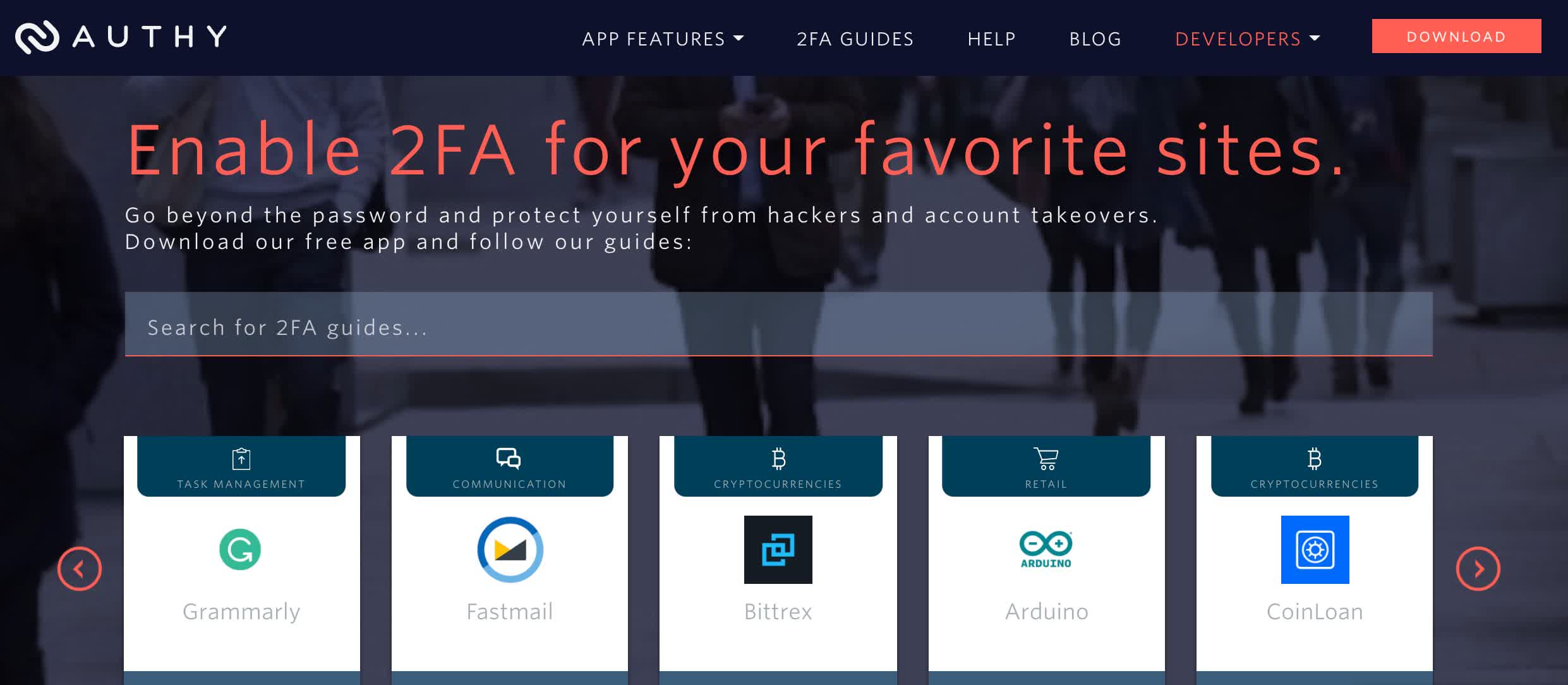
There’s only one drawback to Authy for us privacy types – it is not open source.
- FreeOTP – A free and open source replacement for Google Authenticator on iOS and Android devices. Attractive and easy to use, but features are limited.
- AndOTP – Another free and open source authenticator with backup/restore capability. Only works on Android devices.
Other alternatives to Google Authenticator include the authenticator built into some password managers. LastPass, for example, and hardware security keys like the Yubikey line of products.
Google Drive alternatives
If you’re looking for a private, secure cloud storage option, you can check out these Google Drive alternatives:
- Tresorit – A user-friendly cloud storage option based in Switzerland.
- Sync.com – Based in Canada, Sync offers a secure, encrypted cloud storage solution for businesses and individuals.
- NordLocker – From the team behind NordVPN and also NordPass comes NordLocker. NordLocker is a hybrid encryption tool and secure cloud storage.
- Nextcloud – Nextcloud is an open source, self-hosted file sharing and collaboration platform, based in Germany.
- MEGA – Based in New Zealand, MEGA offers very affordable plans and lots of secure cloud storage space.

There are many other well-known Google Drive alternatives like Dropbox, but they don’t score high marks in the privacy category. Check out our roundup of the best cloud storage solutions for more info on these and others.
Google Calendar alternative
Here are some Google Calendar alternatives:
- Lightning Calendar – An open source calendar option developed by Mozilla. It is compatible with the Thunderbird email program and the Seamonkey software suite.
- Etar – An open source, basic calendar option for Android and iOS.
- Fruux, an open source calendar with good features and support for many operating systems.

If you are looking for a solution that includes both email and calendar functionality, these providers offer that:
Google Docs / Sheets / Slides alternative
There are many solid Google Docs alternatives available. The largest offline document editing suite is, of course, Microsoft Office. As most people know, however, Microsoft is not the best company for privacy. Nonetheless, there are a few other good Google Docs alternatives:
- CryptPad – CryptPad is a privacy-focused alternative with strong encryption, and it’s free.
- Etherpad – A self-hosted collaborative online editor that’s also open source.
- Mailfence Documents – From the Mailfence team, this is a secure file sharing, storage, and collaboration tool.
- Zoho Docs – This is another good Google Docs alternative with a clean interface and good functionality, although it isn’t the best choice if privacy is your top priority.
- OnlyOffice – OnlyOffice feels a bit more restricted than some of the other options in terms of features.
- Cryptee – This is a privacy-focused platform for photo and document storage and editing. It’s open source and based in Estonia.
- LibreOffice (offline) – You can use LibreOffice which is free and open source.
- Apache OpenOffice (offline) – Another good open source office suite.

Google Photos alternative
Here are a few good Google Photos alternatives:
- Piwigo – Piwigo is a great option that you can self-host. It is also free and open source.
- Lychee – Lychee is another self-hosted, open source photo management platform.
- Cryptee – Mentioned already above, Cryptee is also a great option for securely storing photos.
- PhotoPrism – is an open source photo app that can be self-hosted, or run on a private server.
In November 2020, Google announced major changes to their policy of free, unlimited photo storage. These changes go into effect June 1, 2021, making now the time to move to an alternate service.
YouTube alternatives
Unfortunately, YouTube alternatives can really be hit or miss, with most struggling to gain popularity.
Invidio.us was one of our favorite YouTube alternatives. It worked as a proxy, allowing you to watch any YouTube video without logging in, even if the video was somehow restricted. Unfortunately, Invidious.us shut down on September 2020. There are some alternative sites out there, but we can’t vouch for their security nor privacy. If you want to give one or more of them a try, you’ll find a list of alternate Invidious instances here.
Google Translate alternative
Here are a few Google translate alternatives I have come across:
- DeepL – DeepL is a solid Google Translate alternative that seems to give great results. Like Google Translate, DeepL allows you to post up to 5,000 characters at a time (but the pro version is unlimited). The user interface is good and there is also a built-in dictionary feature.
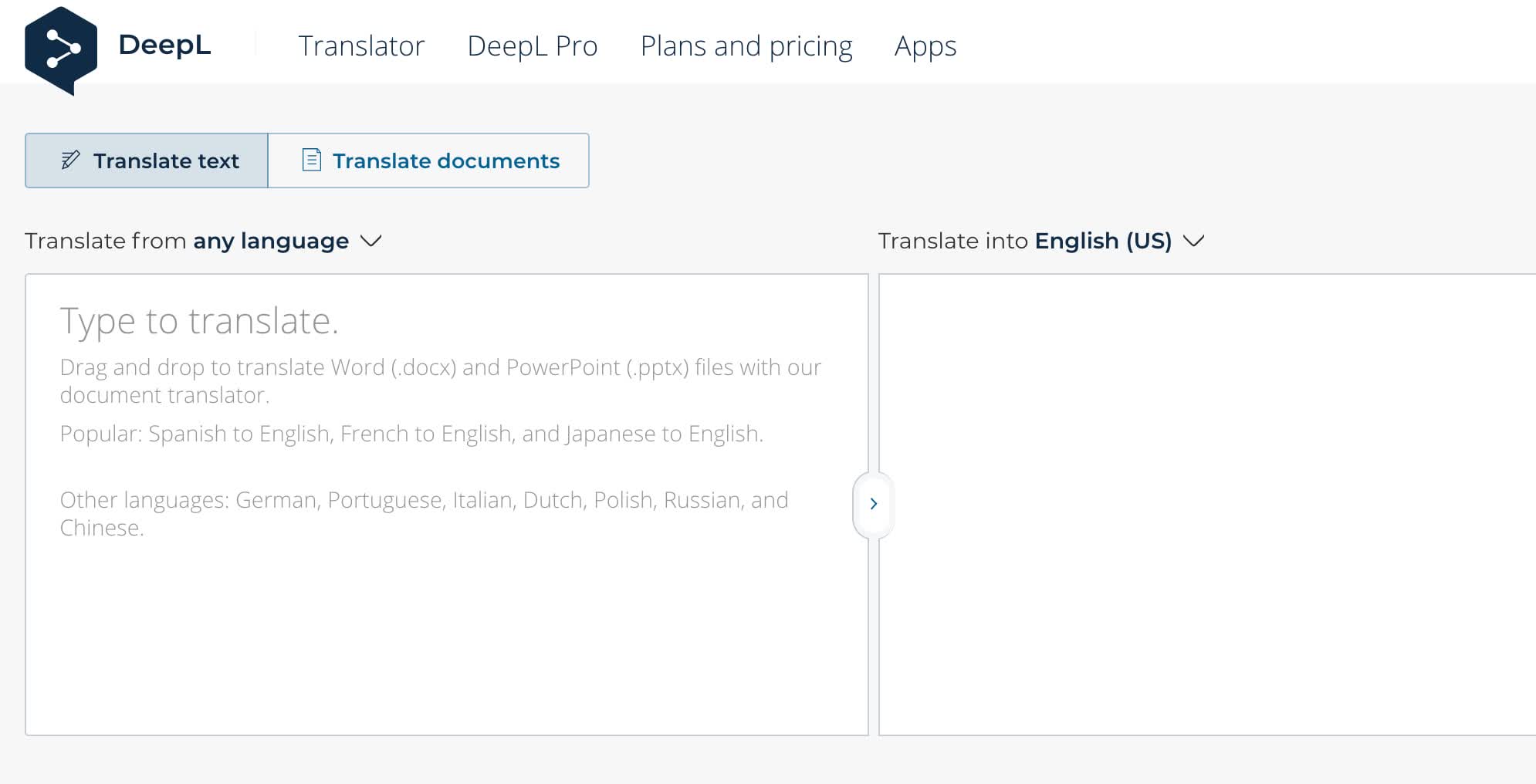
DeepL is one powerful replacement for Google Translate
In addition, DeepL offers a Pro version that supports an unlimited number of characters. They also offer apps for Windows and Mac that are faster and easier to use than the web app.
- Linguee – Linguee does not allow you to post large blocks of text like DeepL. However, Linguee will give you very accurate translations for single words or phrases, along with context examples.
- dict.cc – This Google Translate alternative seems to do a decent job on single-world lookups, but it also feels a bit outdated.
If you want to translate blocks of text, check out DeepL. If you want in-depth translations for single words or phrases, then Linguee is a good choice.
Google Analytics alternative
For website admins, there are many reasons to use an alternative to Google analytics. Aside from privacy concerns, there are also faster and more user-friendly alternatives that will respect your visitors’ privacy.
- Clicky – A great alternative to Google Analytics that truncates and anonymizes visitor IP addresses by default. It is lightweight, user-friendly, and fully compliant with GDPR regulations.
- Matomo (formerly Piwik) – An open-source analytics platform that respects the privacy of visitors by anonymizing and truncating visitor IP addresses (if enabled by the website admin). It is also certified to respect user privacy.
- Fathom Analytics – An open source alternative to Google Analytics that’s available on Github here. It’s minimal, fast, and lightweight.
- Get Insights – Another privacy-focused analytics platform, with a full analytics suite. The front-end client is open source and available here.
- AT Internet – A France-based analytics provider that is fully GDPR compliant, with all data stored on French servers, and a good track record going back to 1996.
Many websites host Google Analytics because they run Google AdSense campaigns. Without Google Analytics, tracking the performance of these campaigns would be difficult. Nonetheless, there are definitely better options for privacy.
Google Maps alternative
A map alternative for PCs is OpenStreetMap. A few Google Maps alternatives for mobile devices include:
- OsmAnd – a free and open-source mobile maps app for both Android and iOS (based on OpenStreetMap data).
- Maps (F Droid) – uses OpenStreetMap data (offline).
- MapHub – based on OpenStreetMap data and it does not collect locations or user IP addresses.
- Here WeGo – a free (ad supported) service that complies with GDPR privacy requirements for all users worldwide.
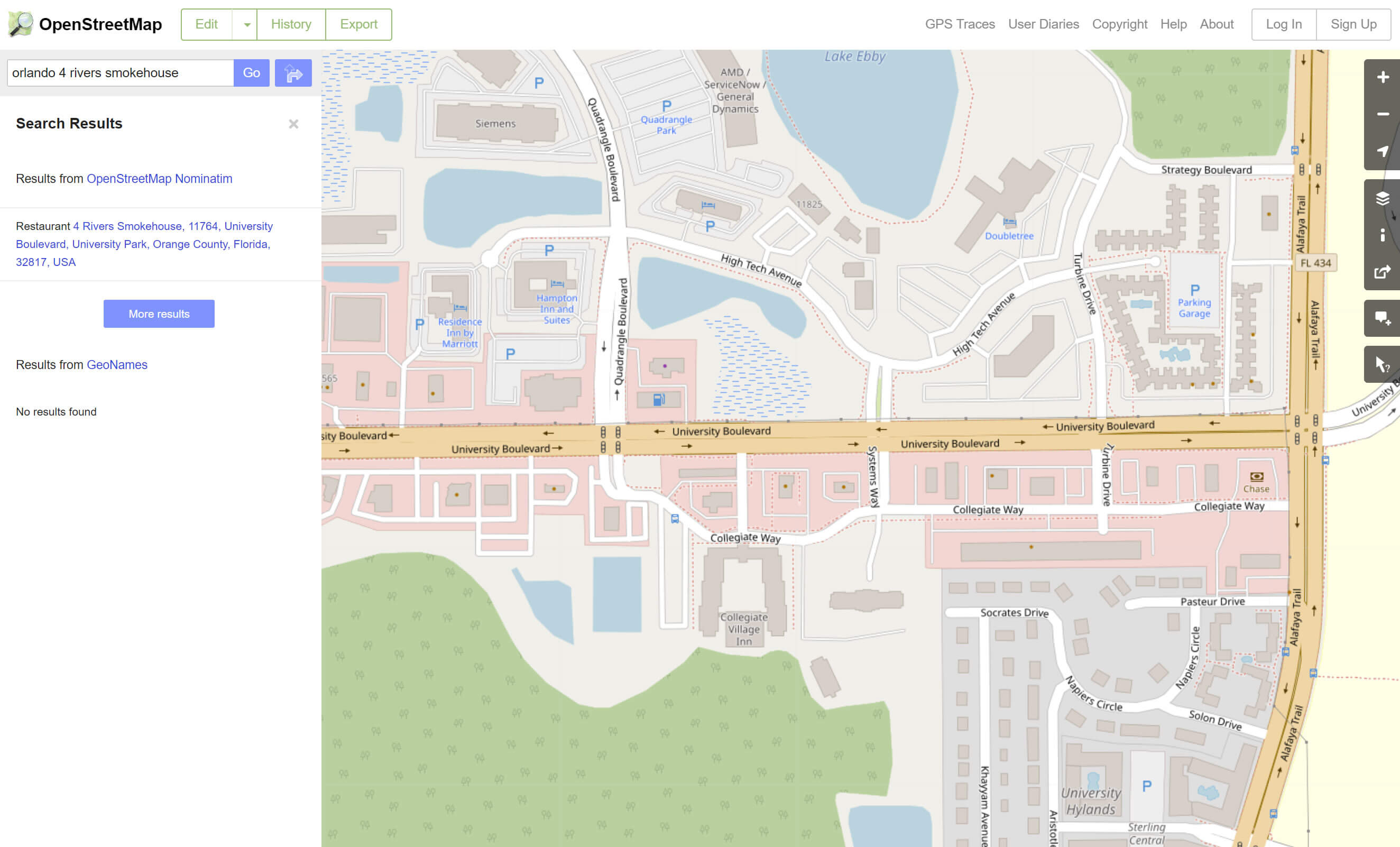
Waze was a popular alternative to Google Maps until it was acquired by Google.
Google Play Store alternative
Currently the best Google Play Store alternative is to use F-Droid.
F-Droid is an installable catalog of FOSS (Free and Open Source Software) applications for the Android platform. Other alternatives to the Google Play Store include:
- Aptoide – An independent marketplace for Android apps. Be aware that Aptoide suffered a major hack in 2020, exposing more than 20,000,000 accounts. You’ll have to decide for yourself whether you are willing to use this service.
- APKMirror – This is a large library of APK files uploaded by different users (be careful).
- Aurora Store – A fork of the Yalp Store.
Google Chrome OS alternative
Want to ditch the Chromebook and Chrome OS? Here are a few alternatives:
- Linux – Of course, Linux is arguably the best alternative, being a free, open-source operating system with lots of different flavors. Versions of Linux are available for virtually any computing platform. We’re talking supercomputers (all of the top 500 supercomputers run Linux), standard desktops, Chromebooks, even tiny single-board computers like the Raspberry Pi.
- Tails – Tails is a free, privacy-focused operating system based on Linux that routes all traffic through the Tor network.
- QubesOS – Recommended by Edward Snowden, free and open source.
The two operating systems most popular with the general public are Microsoft Windows and Apple’s operating system for MacBooks – Mac OS. Techies have voiced privacy concerns about Windows for many years. For various reasons, Windows has earned a bad reputation for protecting your privacy. Windows 10, the newest version of the product, is also the worst when it comes to violating user privacy.
While slightly better than Windows, Apple uses Mac OS to collect user data and has partnered with government agencies for surveillance.
Android alternatives
The biggest alternative to Android is iOS from Apple. But iOS is no big winner when it comes to privacy either. Here are a few Android OS alternatives that can really boost your mobile privacy:
- LineageOS – A free and open-source operating system for phones and tablets based on Android.
- Ubuntu Touch – A mobile version of the Ubuntu operating system.
- Plasma Mobile – An open source, Linux-based operating system with active development.
- Sailfish OS – Another open source, Linux-based mobile OS.
- Replicant – A fully free Android distribution with an emphasis on freedom, privacy, and security.
- /e/ – This is another open source project with a focus on privacy and security.
- Purism is addressing the issue of mobile phone privacy by bringing out their own phone, called the Librem 5.
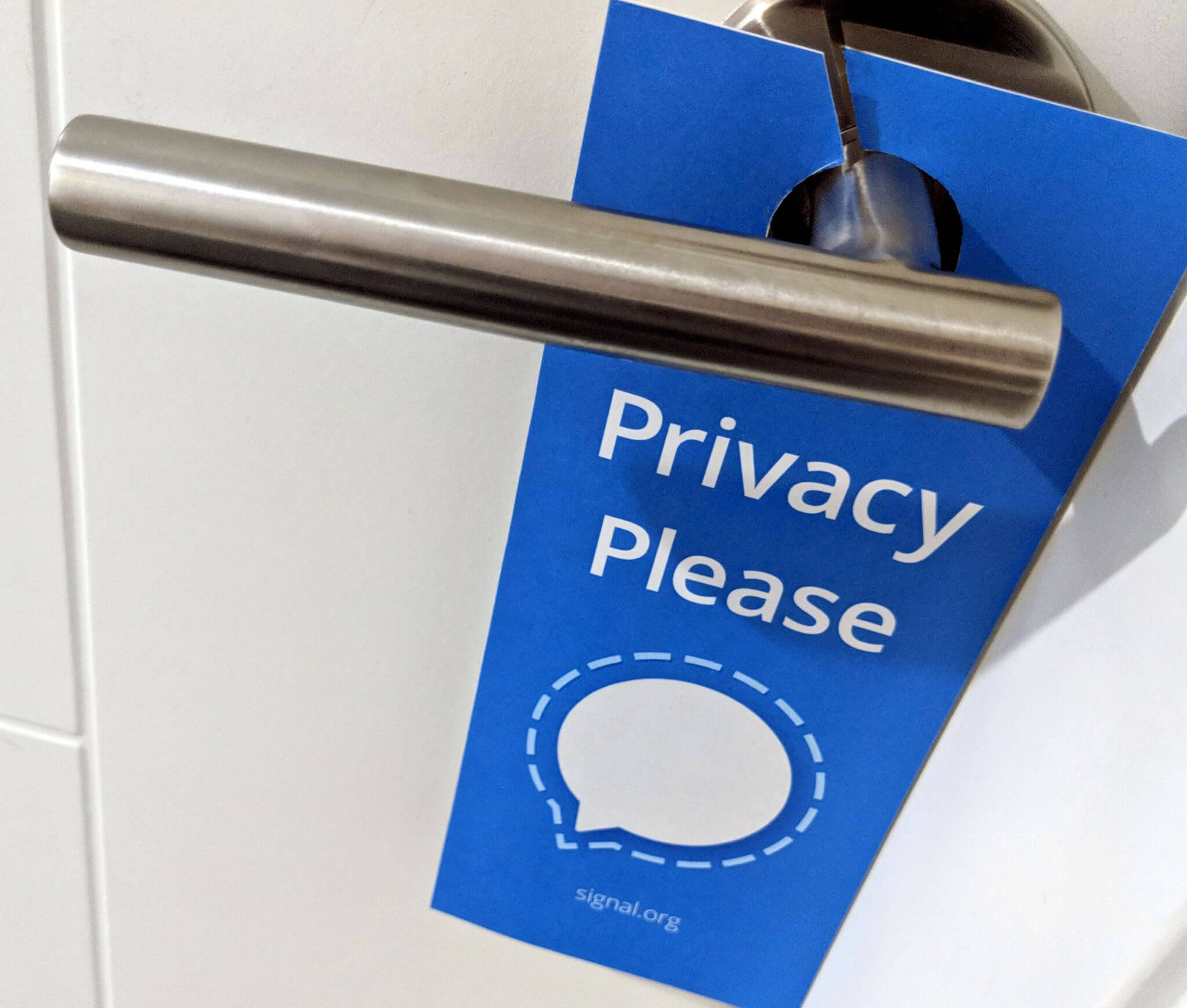
Google Hangouts alternatives
Here are some Google Hangouts alternatives:
- Wire – A great all-around secure messenger, video, and chat app, but somewhat limited on the number of people who can chat together in a group conversation via voice or video.
- Signal – A good secure messenger platform from Open Whisper Systems.
- Telegram – A longtime secure messenger app, formerly based in Russia, now in Dubai.
- Element.io – A privacy-focused encrypted chat service that is also open source. Formerly known as riot.im.
To learn about these and other messenger platforms that protect your privacy, see our guide to the best secure messenger apps available.
Google Domains alternative
Google Domains is a domain registration service. Here are a few alternatives:
- Namecheap – I like Namecheap because all domain purchases now come with free WhoisGuard protection for life, which protects your contact information from third parties. Namecheap also accepts Bitcoin and offers domain registration, hosting, email, SSL certs, and a variety of other products.
- Njalla – Njalla is a privacy-focused domain registration service based in Nevis. They offer hosting options, too, and also accept cryptocurrency payments.
- OrangeWebsite – OrangeWebsite offers anonymous domain registration services and also accepts cryptocurrency payments, based in Iceland.
Even more Google alternatives!
Google Forms alternative – JotForm is a free online form builder
Google Keep alternatives – Below are a few different Google Keep alternatives:
- Standard Notes is a great alternative for a note-taking service. It is secure, encrypted, and free with apps for Windows, Mac, Linux, iOS, and Android (web-based also available).
- Joplin is another great option that is open source and works on Windows, Mac, Linux, iOS, and Android.
- Zoho Notebook from Zoho, with apps for desktop and mobile devices.
- QOwnNotes is an open source file editor with Nextcloud integration.
Google Fonts alternative
Many websites load Google fonts through Google APIs, but that’s not necessary. One alternative to this is to use Font Squirrel, which has a large selection of both Google and non-Google fonts which are free to download and use.
Google Voice alternatives – JMP.chat (both free and paid), Line2 (paid)
G Suite alternative – Zoho is probably the best option
Google Firebase alternative – Kuzzle, free and open source
Google Blogger alternatives – WordPress, Medium, and Ghost are all good options
But what about your internet service provider?
Most people looking for Google alternatives have woken up to the fact that they are paying for free products with their private data. But what about your internet service provider? In the United States, United Kingdom, and Australia, internet service providers are also recording your online activity. This information can be legally sold to third parties (in the US), or saved in government databases (UK, US, and Australia).
Aside from government surveillance agencies, there are many private companies tracking your data — in addition to Google, Facebook, and the other usual suspects. To retain a basic level of privacy and security online, you need three tools:
1. Private and secure browser
We covered 7 Chrome alternatives above, but the secure and private browser guide dives into this issue more intensely. Your browser can reveal lots of private and sensitive data to third parties; be sure to choose carefully.
2. Virtual Private Network (VPN)
A VPN will encrypt and anonymize your online activity from third parties, while also hiding your true IP address and location. Simply install the VPN app on your device, connect to a VPN server, then go about your business as normal. This effectively solves the ISP spying problem.
A VPN will effectively block your internet provider and third parties from snooping your activity and tracking you by your real IP address. Some of the top VPN providers from our best VPN services list includes NordVPN, Surfshark and ExpressVPN.
3. Ad blocker
Many ads also function as tracking for large advertising networks. A good ad blocker is an important privacy tool that will also improve page load speeds and declutter your browser. For a good understanding of the issues along with recommended products, check out this ad-blocker guide. The privacy tools guide discusses other solutions as well, including password managers, secure messenger services and more.
Do you have any other tips or suggestions for Google alternatives? Feel free to drop a comment below. This guide will be regularly updated to reflect the latest information and user feedback.
